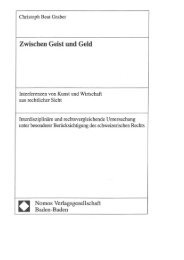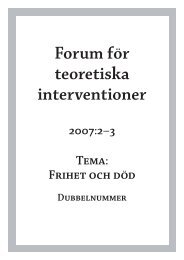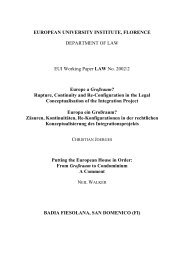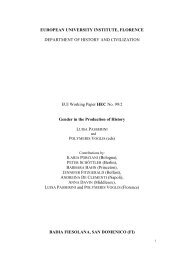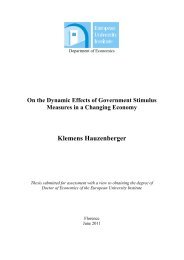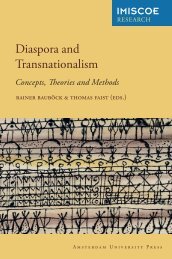Sinziana-Elena Poiana Ioana Lupea Irina-Madalina Doroftei Alina ...
Sinziana-Elena Poiana Ioana Lupea Irina-Madalina Doroftei Alina ...
Sinziana-Elena Poiana Ioana Lupea Irina-Madalina Doroftei Alina ...
Create successful ePaper yourself
Turn your PDF publications into a flip-book with our unique Google optimized e-Paper software.
In the same news, illustrated with images of the symbolic execution, the journalists from "Adevarul"<br />
reminded that the presidents of Harghita, Covasna and Mures county councils (the counties that<br />
represent the former three Szekler seats) all took the oath to obtain Hungarian citizenship on<br />
Hungary’s National Day. In the same news, the newspaper’s online edition referred to an interview<br />
from the previous year of the National Szekler Council’s president when he claimed the autonomy of<br />
the Szekler Counties. The daily online newspaper, Gandul, included the information on Csibi Barna in<br />
the news on the three presidents of the Szekler County Councils taking the oath for the Hungarian<br />
citizenship under the headline: "Hungary’s National Day: an extremist hanged Avram Iancu in<br />
Miercurea Ciuc. Several UDMR leaders took the oath towards Hungary". On March 23rd, Jurnalul<br />
National, counting 149 000 readers per edition, tells its readers how Csibi Barna appeared before the<br />
prosecutors: ”Csibi Barna appeared accompanied by his father and, lacking respect for his Romanian<br />
fellows, he answered the journalists’ questions in Hungarian. We could say that he had some nerve to<br />
act like he did, considering that he is a public servant within (DGFP) Harghita Public Finance<br />
Directorate. By the way he behaved yesterday, Csibi Barna proves that he does not regret for a second<br />
his action at the celebration of Hungary’s National Day". The same newspaper attached to the press<br />
release a music video with a ballad on Avram Iancu’s mystical mission. Historia Magazine dedicated<br />
an entire issue to the Romanian fighter, and Evenimentul Zilei (the thirdly ranked newspaper) made a<br />
dossier on Avram Iancu. The televisions Antena 3 and Realitatea TV broadcast nonstop the movie<br />
with Csibi Barna hanging the effigy of Avram Iancu, news and debates on this topic. Both television<br />
stations invited as special guest commentator Corneliu Vadim Tudor, member of the European<br />
Parliament and president of the ultranationalist party "Romania Mare", without seats in the Parliament.<br />
Vadim Tudor criticized in his inflammatory speech the Hungarian revisionism that would not give up<br />
Transylvania.<br />
According to the persons interviewed, the attention paid by the national press explains the reputation<br />
of the case. "The national press paid too much attention to this event, trying to create an artificial<br />
conflict between the Hungarian and the Romanian community in Transylvania and trying to generalize<br />
this isolated event to create the impression that all Hungarians act like this" (Antal Arpad, Mayor of<br />
Sfantu Gheorghe, Antal Arpad’s interview). "The press exaggerated this singular event (because there<br />
was only one participant, not a crowd) amplifying the phenomenon with its mirrors" (Vlad Mixich,<br />
Hotnews journalist, Vlad Mixich’s interview). "A predictable reaction that multiplies the prejudices of<br />
the masses" (Sabina Fati, historian, Sabina Fatis's interview)<br />
It is relevant that only 37.9% of the Hungarians asked by IRES declared they knew about Csibi<br />
Barna’s action. The Hungarian press paid little attention to this event, most of them just told what had<br />
happened on March 14th in Miercurea Ciuc, the institutional effects of the event and the reactions of<br />
the Romanian and Hungarian politicians, taking declarations from the Romanian politicians for the<br />
national televisions and newspapers. The Hungarian newspapers from the Szekler region, Haromszek<br />
and Szekler Hirmondo, underlined that Csibi Barna’s action was rash, condemnable, stupid, foolish,<br />
theatrical and irresponsible and that the incident was used as pretense to revive the Hungarian<br />
accusing-discourse. The Hungarian journalists commented more on the Parliament’s session where the<br />
opposition brought the case of Csibi Barna in the debate about the letter addressed by the Hungarian<br />
Prime Minister Orban Viktor to the Hungarians in Transylvania. The Hungarian daily newspaper<br />
Haromszek (Three Seats referring to the three Szekler historical ‚seats’ (fiefdoms), published in<br />
Sfantul Gheorghe, Covasna county commented on March 22nd: "the many politicians who worry for<br />
their country proved how deep is the Romanian political elite’s fear - close to paranoia - with respect<br />
to the permanent prophecy of losing Transylvania. (...) The area is covered by hatred, obsessions and<br />
fears that are easily and irresponsibly used by politicians and public speakers".<br />
Political discourse: from regional autonomy to the prospect of a national-security threat<br />
This prophecy of loosing Transylvania is present in the Romanian political discourse since the early<br />
'90s. The issue was introduced immediately after the revolution from December 1989 by the first post-<br />
60



